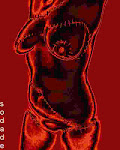The Heidegger correspondence confirms that Arendt lived this principle. In 1950, seventeen years after they had last communicated, Arendt and Heidegger met again, when she went to Germany to help track down stolen Jewish cultural treasures. At times, she had been publicly critical of Heidegger’s behavior during his rectorship and afterward, but the renewal of their ties banished all her suspicions. “This evening and this morning are the confirmation of an entire life,” she wrote to him after their meeting. For the next two years, their love enjoyed a brief afterlife, as Heidegger wrote poems about her and told her things like “I wish I could run the five-fingered comb through your frizzy hair.” Even when the jealousy of Heidegger’s wife, Elfriede, brought this quasi-romance to an end, Arendt kept in touch with her old teacher. In the last years of his life, she helped get his work translated in America.
(exc. uit Beware of pity, Hannah Arendt and the power of the impersonal.
by Adam Kirsch)





